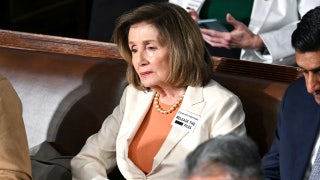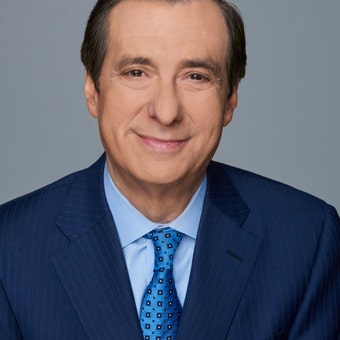Kurtz: Nearly everything in '60 Minutes' piece was 'designed' to paint DeSantis as a 'bad guy'
Fox News media analyst Howard Kurtz joins 'America Reports' to discuss the widely criticized CBS '60 Minutes' segment.
The headline at the top of Politico yesterday read like it could have been scripted at the White House:
"Biden Wants to Cement a Governing Majority. His Build Back Better Bill is His Plan to Do It."
That ran next to an equally uplifting headline, "Chuck Schumer is Thinking Big—Gridlocked Senate Be Damned," based on an interview with the majority leader.
The first story zoomed in on the president’s $2-trillion infrastructure plan, saying it "doesn’t just attempt to turn decades-old progressive policy pursuits into law. Aides and operatives inside and out of the White House are coming to view it as an ambitious political play to cement, and even expand, the coalition of voters that delivered Democrats to power in November."
Various Democrats are quoting salivating over this "once-in-a-generation opportunity," with a couple of Republican dissenters lower down.
The point is not to beat up on Politico but to describe the friendly media climate in which the new president is pushing a massive amount of spending. Forget about Donald Trump; I can’t imagine George W. Bush or Ronald Reagan getting this kind of warm reception for their budget-cutting or tax-cutting. Rather than expressing sticker shock that Biden may seek as much as $4 trillion more for this bill and the next, on top of the $2-trillion Covid bill, the press is casting this as big, bold and revolutionary.
WHY MEDIA HOSTILITY BOOSTS RON DESANTIS, ESPECIALLY AFTER ’60 MINUTES’ MISFIRE
The same goes for Schumer getting a parliamentarian’s ruling that will enable him to pass infrastructure on the same fast track as the stimulus bill, meaning with just 50 Democratic votes and likely zero support from the GOP. Now reconciliation is a game that both parties play. But can you imagine the media drumbeat about anti-democratic tactics if Trump had done this twice on big bills, not just once, in 2017?
And Biden’s plan to finance infrastructure by raising taxes on corporations and the wealthy is being met with a media shrug, rather than the outrage among Republicans. (Of course, raising the corporate tax rate from 21 to 28 percent doesn’t seem as radical when you consider that Trump slashed it from the previous 35 percent.)
This is not to say that either Biden bill is wrong-headed; both seem pretty popular. We obviously needed funding for small businesses, vaccines and schools, and Republicans used to like infrastructure. But the White House in both cases is taking a Christmas-tree approach, adding union bailouts, home care for seniors, electric cars and other climate change and "environmental justice" measures. When the press trots out the FDR comparisons, it’s the equivalent of a high five.
One thing we’re not getting is many details as to how these bills are being crafted and negotiated. That’s because, as the Washington Post observes today, this has been a remarkably leak-free White House so far.
"Insider accounts of West Wing rivalries, analyses of who wields influence with the president, detailed lists of Oval Office visitors? No such thing anymore," the paper says. There aren’t even authorized, self-serving leaks in the mold of "Joe Biden slammed his fist on the desk and said ‘We’ve got to get this done, failure is not an option.’"
The Trump White House was the leakiest in history, as a disparate collection of aides tried to grab credit, discredit each other and sometimes undermine their boss, who also was not above whispering to reporters and commentators.
SUBSCRIBE TO HOWIE'S MEDIA BUZZMETER PODCAST, A RIFF OF THE DAY'S HOTTEST STORIES
But Biden has a longtime coterie of aides, starting with Ron Klain and Anita Dunn, who like each other and are intensely loyal to their POTUS. The degree of message discipline has been extraordinary. That frustrates journalists and probably helps the White House, though I’d argue that lifting the curtain a bit more would help them push a fuller narrative and lead to fewer stories about Biden’s dogs.
And yet with all the positive coverage of the White House so far, they may simply be thinking, why bother?










































